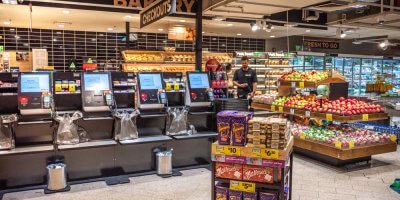
How AI will impact jobs. Source: Shutterstock
Frost & Sullivan forecasts AI’s impact on jobs in Australia
ARTIFICIAL INTELLIGENCE (AI) is an interesting technology. In the early stages, its capabilities were limited to automating tasks and running models to help make sense of data in real time.
However, as it evolves, it’s applications have extended to automating entire job roles and disrupting entire industries.
In Australia alone, according to Frost & Sullivan, spending on AI capabilities is expected to grow to AU$1.98 billion (US$1.42 billion) by 2025, that’s a compounded annual growth rate (CAGR) of 22 percent per annum from 2016’s AU$333 million (US$239 million) figure.
One of the biggest reasons for the increase in interest, and therefore investment, is the fact that the technology is helping companies move forward in leaps and bounds.
True, it’s closing some opportunities and making several jobs redundant, but it’s also creating several new opportunities and jobs across industries.
“AI-driven automation is threatening to displace non-skilled and most supporting roles in corporate environments involving routine, repetitive tasks,” Frost & Sullivan Research Director Vijayendra Rao told Tech Wire Asia.
According to analysts, AI is shifting and disrupting the global labor ecosystem. They estimate there will be lower workweek hours as AI is employed to handle tedious tasks, leaving humans to concentrate on functions involving high-level thinking.
Unfortunately, AI is expected to significantly disrupt blue collar jobs in the near future. Obviously, the demand for jobs in technology development and ancillary services will increase, as will the value of jobs involving artisanal skills and creativity.
Frost & Sullivan’s studies forecast that sales assistants and administrators, office managers, transport and dispatch clerks, and other clerical staff will be impacted just as much as cab and truck drivers, livestock farmers, and construction workers.
In fact, the team of analysts expects significant job losses in the mining and energy, transport & logistics, agriculture, animal, & horticulture, and manufacturing industries — between 2015 and 2030 in Australia.
However, there’s hope for industries where the human touch is valued and cannot be replaced by automation. Here are a few industries that are expected to see high positive job growth despite AI:
- Information and communications technology industry — 14 percent
- Health and community services industry — 13 percent
- Personal services industry — 13 percent
AI will definitely be creating new jobs for Australia as well. Between 2015 and 2030, Rao forecasts companies will be looking to hire online chaperones, personalized preventative health helpers, remote-controlled vehicle operators, customer experience experts, complex decision support executives, and social media buying experts.
An important thing Rao’s team discovered is that not only the jobs that require low skills to perform will be automated, but even those that require highly skilled professionals.
Hence, accounting jobs risk being automated entirely just as much as clerical jobs do.
At the end of the day, the truth is nobody can stop AI. It’s something that Australian companies need to adopt and implement quickly in order to remain relevant in the competitive global landscape.
For most companies, the smartest thing to do ahead of the new wave of AI-powered automations get implemented is to focus on retraining and reskilling existing staff to ensure they can drive the organization into the new digital-first era of business and commerce.
READ MORE
- Safer Automation: How Sophic and Firmus Succeeded in Malaysia with MDEC’s Support
- Privilege granted, not gained: Intelligent authorization for enhanced infrastructure productivity
- Low-Code produces the Proof-of-Possibilities
- New Wearables Enable Staff to Work Faster and Safer
- Experts weigh in on Oracle’s departure from adland






